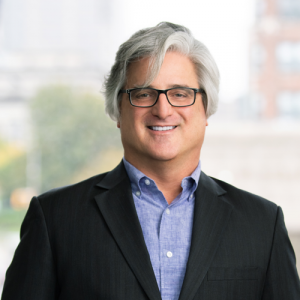Yesterday, the First Circuit Court of Appeals issued a new opinion in Universal Health Services, Inc. v. United States ex rel. Escobar. Applying the materiality test enunciated by the Supreme Court in June, the First Circuit reaffirmed its previous decision that the whistleblowers’ complaint sufficiently stated a claim under the False Claims Act (“FCA”) to survive the defendants’ motion to dismiss.
Background
The whistleblowers in Escobar originally filed a FCA suit against Universal Health Services, Inc. (“UHS”) on July 1, 2011 in the United States District Court for the District of Massachusetts. The whistleblowers alleged that UHS had failed to disclose that certain of its personnel did not comply with applicable licensing and supervision requirements, and therefore claims submitted to the government for services provided by such personnel were false under the “implied certification theory.” The whistleblowers uncovered information that 23 UHS employees had obtained National Provider Identification numbers that misrepresented their licensure status. The district court originally dismissed the claims for failure to state a claim, finding that the licensing and supervision requirements were conditions of participation, rather than conditions of payment, and therefore could not establish falsity under the FCA. The First Circuit reversed, finding that the licensing and supervision requirements were conditions of payment, and therefore could establish falsity.
The Supreme Court granted certiorari to resolve a circuit split regarding the viability of the implied certification theory under the FCA. As explained in a previous post, while the Supreme Court upheld the implied theory of certification, it placed the emphasis on whether compliance with the requirement that was violated was “material to the Government’s payment decision….”. The Supreme Court then remanded the case to the First Circuit Court of Appeals.
First Circuit’s Opinion
The First Circuit stated that the fundamental inquiry under the materiality standard is “‘whether a piece of information is sufficiently important to influence the behavior of the recipient.’” Applying this test, the Court found that the defendant’s alleged failure to meet the applicable licensing and supervision standards was material to the government’s decision to pay. The Court provided the following support for its determination:
- Compliance with the applicable requirements was a condition of payment, which is “relevant” even if not “dispositive” to materiality; and
- The licensing and supervision requirements go to the “very essence of the bargain” regarding the government’s relationship with health care providers.
UHS argued that the government was aware of the alleged violations and yet continued to pay for related claims, which the Supreme Court listed as evidence against a finding of materiality. In response, the First Circuit stated that it saw no evidence of the government’ actual knowledge of the defendant’s non-compliance, and furthermore that mere awareness of allegations concerning noncompliance “is different from actual knowledge” when considering materiality.
Discussion
Given the First Circuit’s previous ruling and its previous broad interpretation of the implied certification theory, this outcome is not unexpected. However, it does provide additional insight into how courts will apply the Supreme Court’s materiality standard.
The First Circuit continued to emphasize the fact that the regulations at issue were a condition of payment, which indicates that the condition of payment vs. condition of participation distinction will continue to be important in future FCA cases. The court’s discussion regarding the impact of the government’s actual knowledge of violations on materiality could also have interesting implications on self-disclosure.
Although the First Circuit specifically declined to review this point, the opinion indicates that self-disclosing a violation to the government could potentially cut off FCA liability for future claims, or even for all implicated claims, if the government continues paying for such claims after the self-disclosure, as such violation might not be considered material.
Practical Takeaway
While likely the end of the road for Escobar, this opinion demonstrates how a circuit that had adopted one of the broader interpretations of the implied certification theory can use the materiality standard to continue to support that broad interpretation. It is also interesting to contrast the First Circuit’s application of Escobar‘s materiality standard in support of its previous broad interpretation to the Seventh Circuit’s application of that same standard in support of its previous narrow interpretation, discussed here.
If you have any questions, please contact:
- Jon S. Zucker at jzucker@wp.hallrender.com or (919) 447-4964;
- David B. Honig at dhonig@wp.hallrender.com or (317) 977-1447;
- Amy O. Garrigues at agarrigues@wp.hallrender.com or (919) 447-4962; or
- Your regular Hall Render attorney.

